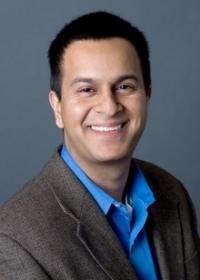Asheen Phansey: "Life creates conditions conducive to life,” part 2*
Submitted on
Welcome to another installment of “10 Words or Less,” in which I ask brief questions of interesting people, and request brief answers in return. Today’s participant is listed eighth on GreenBiz’s Twitter Index, which is testament to his formidable combination of smarts and charisma. I once went to a networking group on his suggestion. When I sat down at a table with others and they asked how I’d learned of the group, I said simply, “Asheen,” to which the whole table chorused, “Of course!” Please remember: “10 words” is an ethic, not a limit, so please, no counting! Besides, if you think it’s so easy, let’s see you do it.
 Name Asheen Phansey
Name Asheen Phansey
Fahn-SAY? I’ve been saying it wrong. Yes, it means “One who farms jackfruit.” And my first name means “tireless.”
In what languages? "Phansey is Marathi. Asheen is Sanskrit."
Born when, where: "Oct. 15, 1980, 12:23 a.m., Charleston, S.C."
Anything unusual about the circumstances? “The most unusual thing, if you know me at all, was that I was born on time. I think it was the last time."
Resides: Burlington, Mass.
Family situation: "Married, with two kids that I chase around. 1 1/2 and 4."
First world event you recall being aware of The first event that I really understood and affected me was the Exxon Valdez spill. [March 24, 1989] I can’t remember if that was before or after the first Persian Gulf War. [Aug. 2, 1990]
- Read more about Asheen Phansey: "Life creates conditions conducive to life,” part 2*
- Michael's blog
- Log in to post comments